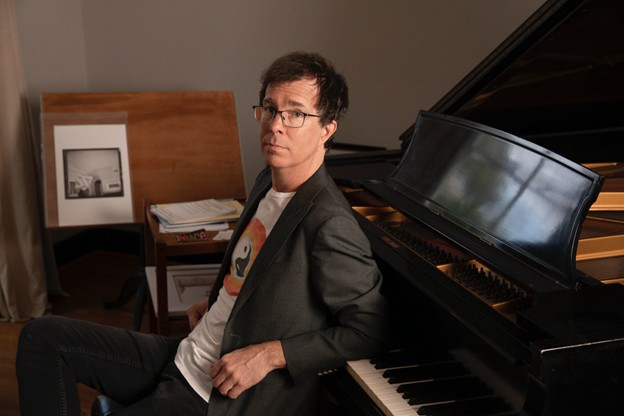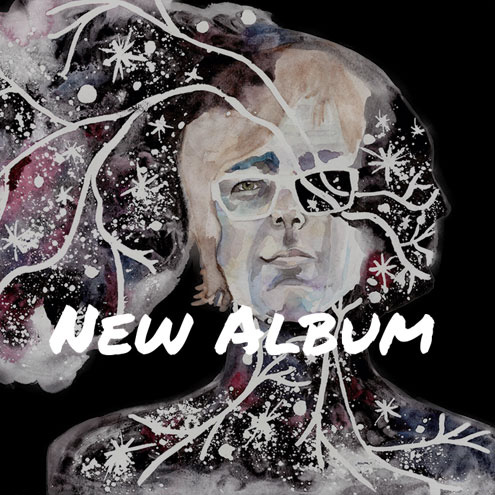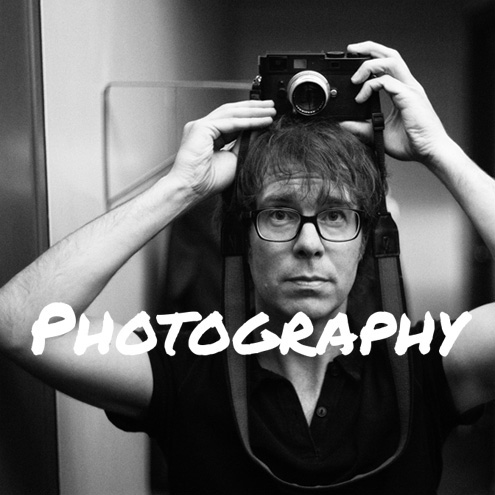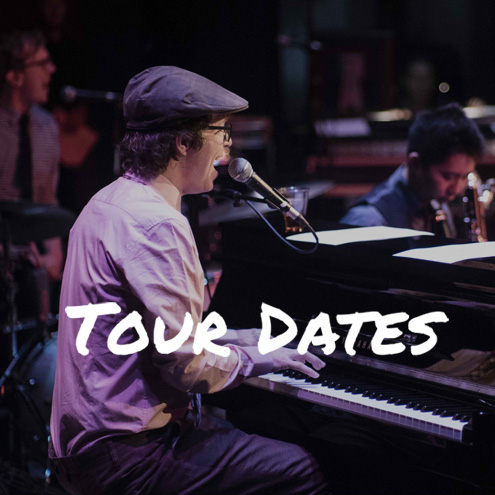
“More than anything, I wanted to make an album that was generous, that was useful,” says Ben Folds. “I want you to finish this record with something you didn’t have when you started.”
Indeed, Folds’ masterful new collection, What Matters Most, isn’t so much a statement as it is an offering, an open hand reaching out to all those wounded and bewildered by a world that seems to make less and less sense every day. Recorded in East Nashville with co-producer Joe Pisapia, the album marks Folds’ first new studio release in eight years, and it’s a bold, timely, cinematic work, one that examines the tragic and the absurd in equal measure as it reckons with hope and despair, gratitude and loss, identity and perspective. The songs are bittersweet here, hilarious at times, but often laced with a quiet sense of longing and dread: a text message goes unanswered; an old classmate descends into the dark depths of internet conspiracies; a relationship unravels in the middle of a lake. And yet, taken as a whole, the result is an undeniably joyful record that refuses to succumb to the weight of the world around it, an ecstatic reminder of all the beauty and promise hiding in plain sight for anyone willing (and present enough) to recognize their moments as they arrive.
“There’s a lifetime of craft and experience all focused into this one record,” Folds reflects. “Sonically, lyrically, emotionally, I don’t think it’s an album I could have made at any other point in my career.”
Born and raised in North Carolina, Folds first rose to fame in the mid-’90s with Ben Folds Five, whose acerbic, genre-bending take on piano pop helped define an entire era of alternative rock. After scoring multiple hit singles and a gold record with the band, Folds launched his solo career in 2001, releasing a series of similarly acclaimed albums that would firmly establish him as one of the most ambitious and versatile songwriters of his generation. In 2010, Folds teamed up with celebrated author Nick Hornby on a collaborative record titled Lonely Avenue; in 2014, he composed and performed his first piano concerto for the Nashville Symphony and Nashville Ballet in 2015, he recorded an album with the classical ensemble yMusic; in 2017, he became the artistic advisor to the National Symphony Orchestra at the Kennedy Center, where he began curating a series of performances marrying contemporary artists with symphonic orchestration; in 2019, he released his New York Times best-selling memoir, A Dream About Lightning Bugs; and in 2021, he launched the Lightning Bugs podcast, an interview series on creativity and process with guests as diverse as Jon Batiste, Sara Bareilles, Bob Saget, and Rainn Wilson.
As if that wasn’t enough to keep him busy, Folds also revealed himself to be a prolific photographer as a member of Sony's prestigious Artisans Of Imagery, with gallery shows in the US and Europe, appeared onscreen in films and television (most recently playing himself in three episodes of the hit Amazon Prime series The Wilds), composed music for a 25-minute stage adaptation of Mo Willem’s Goldilocks and the Three Dinosaurs (which premiered at the Kennedy Center), earned an Emmy nomination for his compostion of the theme song for a popular new Peanuts animated TV special, and serves on the boards of the Arts Action Fund, the Nashville Symphony and Planet Word, a new immersive museum in Washington, DC, dedicated to celebrating the power of language.
“It can be difficult jumping back and forth from one discipline to another,” says Folds, “but you learn so much from moving between worlds and collaborating with so many different kinds of artists. I performed some of the songs on this record with the National Symphony Orchestra before I finished recording them for the album, and that context gave me so much insight into how I wanted to handle them in the studio.”
Working with friends Rob Moose, Ross Garren and Tall Heights, and with Dodie and Ruby Amanfu lending vocal harmonies, Folds tackled the recording process with an orchestrator’s ear, carefully arranging each instrumental element in relief to his electrifying, insistent vocal melodies. Such detailed deliberation didn’t supplant improvisation or spontaneity in the room, but rather it focused the music first and foremost on supporting the lyrics, which stand front and center even in the record’s most sonically wild and unexpected moments.
“One thing I’ve taken from all of my orchestral work is that music feels best to me when it’s an event,” says Folds. “It’s easy to lose sight of that now that you can digitally edit the life and reality out of everything, but I’m trying to take the audience on a ride with me, and a big part of that requires grounding everything in the spirit of storytelling and live performance.”
That marriage of sophisticated craftsmanship and raw energy is clear from the top of the album, which opens with the defiantly optimistic But Wait, There’s More. “Do you still believe in the good of humankind? / I do I do I do I do I do,” Folds sings over a minimalist keyboard sequence that lands somewhere between Steve Reich and Laurie Anderson before giving way to lush horns and propulsive drums. Like much of the album, the song revels in unpredictability, zigging when you expect it to zag as it offers an empathetic acknowledgement of just how exhausting it is to live perpetually perched on the edge. “Not sure that we can take too much more,” Folds confesses in the track’s final seconds. “Pray that there’s a bottom somewhere in sight / Brothers and sisters hold tight.”
“The song suddenly gets a little more serious at the end,” Folds reflects, “and I think that’s my way of kind of ushering everyone into this journey that’s about to begin.”
From there, Folds wields humor and pathos with surgical precision as he walks a delicate tightrope between the ridiculous and the mundane. The playful Exhausting Lover spins a surreal caricature of rock and roll debauchery over an utterly addictive groove, while the melancholic Clouds With Ellipses ruminates on the distinctly modern rhythms and anxieties that come with sharing our most intimate, vulnerable selves via text, and the spare Kristine From the 7th Grade watches an acquaintance retreat into their own reality of political misinformation and culture war nonsense.
“I’ve seen so many people who’ve been torn apart from their friends and families due to all sorts of agitating things in the media and on Facebook,” says Folds, who wrote much of the album in Australia, where he spends part of each year. “I wanted the song to acknowledge the sadness of that.”
Folds ultimately isn’t interested in simply lamenting the flaws of our times, but rather in finding ways to still connect to the magic and wonder of being alive no matter what the world may throw at us. The dreamy Back To Anonymous embraces the unexpected freedom of a world in which everyone is masked; the off-kilter pop of Winslow Gardens loses track of the passing time while isolating with a loved one; the aching title track What Matters Most finds new perspective in the face of tragic loss. By the time we arrive at radiant closer Moments, it’s clear that transcendence is always within reach, no matter how unlikely it may seem.
“I come from the vinyl era, and this perhaps more than any record I’ve made is a true album,” says Folds. “There’s a very specific sequence and arc to each side, all building up to this almost surreal positive finale, and that structure was really important to me.”
In the album’s opening moments, But Wait, There’s More comes off as a rather grimly sardonic tease. (We live in an age of overstimulation, overconsumption, and overwhelming self-absorption. Just how much more can we take?) But by the album’s end, the line feels more like a mantra of hope and perseverance, a reminder that there’s more to this life than meets the eye, more to celebrate, more to love, more to be grateful for. It’s hard to imagine a more generous offering than that.




